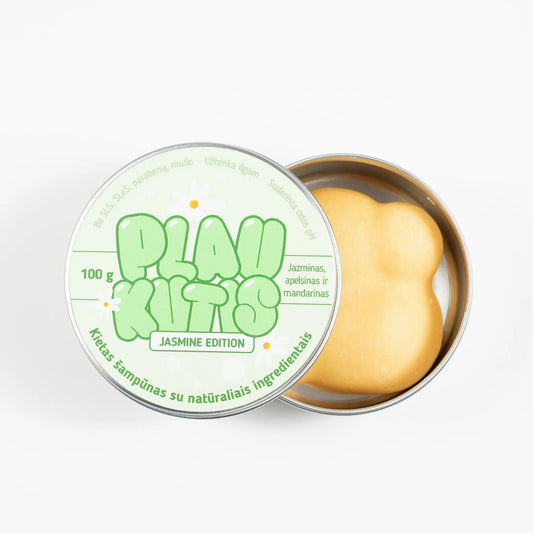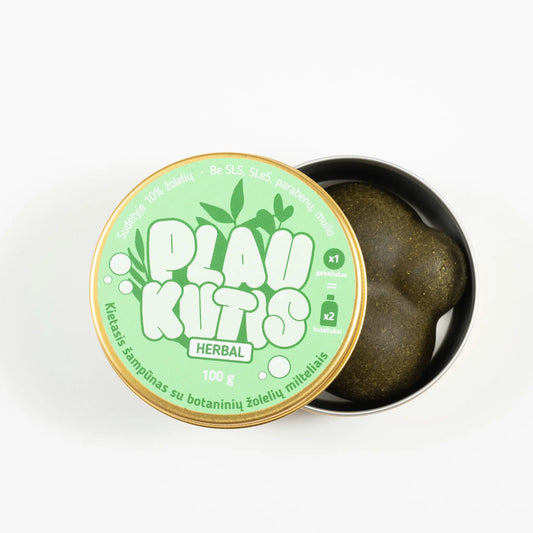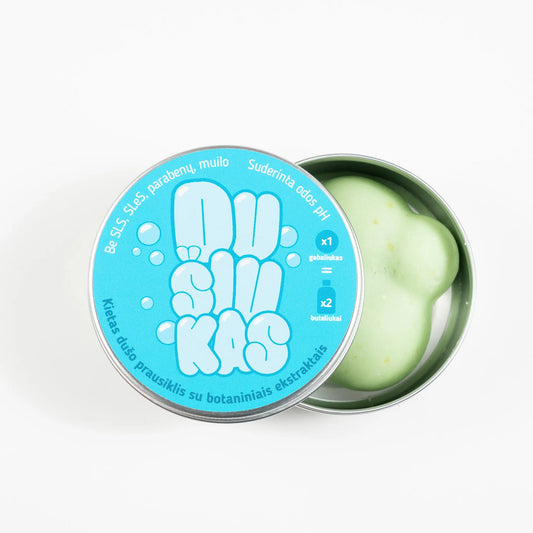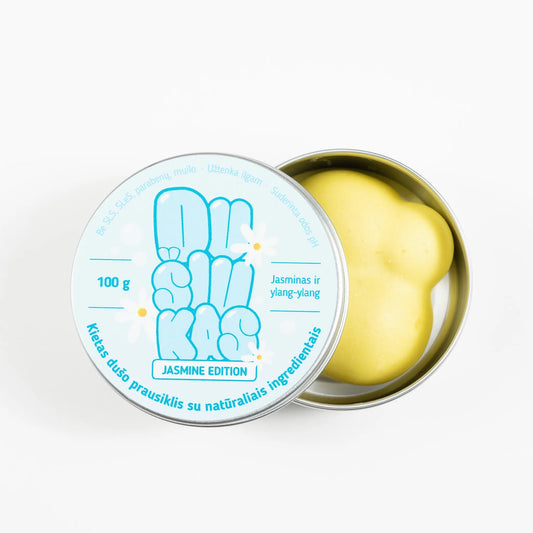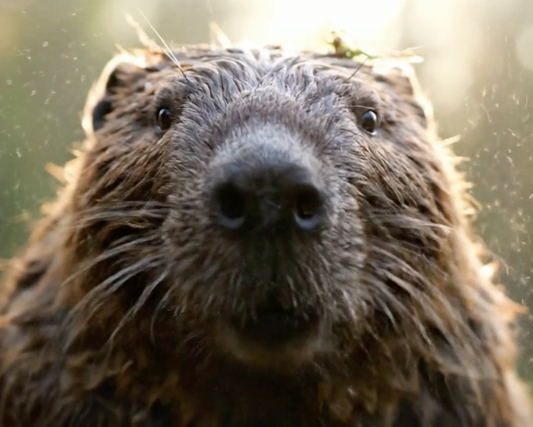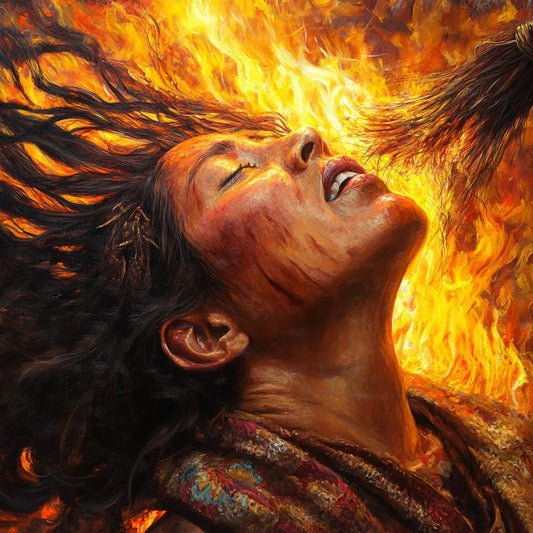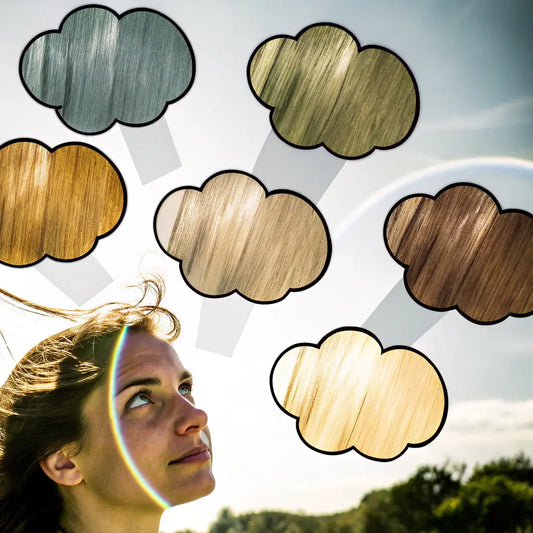Iron is more than just a mineral your body needs – it’s essential for healthy, strong hair. If you’ve ever wondered why your hair is thin, dull, or prone to hair loss, an iron deficiency could be the cause. Iron plays a crucial role in keeping your hair strong and healthy, and is an essential nutrient that can help prevent hair-related problems.
Iron is important because it helps the body make hemoglobin, a protein found in red blood cells. The main function of hemoglobin is to carry oxygen to various parts of the body, including the hair follicles. When hair follicles get the right amount of oxygen, they can grow healthy and strong. If you don’t have enough iron, your body may have trouble nourishing your hair properly, which can cause it to thin, fall out, or even fall out.
Iron deficiency is one of the most common nutritional deficiencies, especially among women. Approximately 30% of women worldwide suffer from low iron levels , which often leads to hair problems. Since hair is not an essential tissue for the body, hair follicles are one of the first places to experience iron deficiency. When the body lacks iron, it prioritizes oxygen delivery to more important organs, and hair follicles suffer as a result. For this reason, optimal iron levels are important not only for hair growth, but also for maintaining its density and shine.

How iron supports hair growth
The role of iron in oxygenating hair follicles
Iron is important for hair growth because it helps your body produce enough red blood cells. These cells carry oxygen to your hair follicles, which is essential for growth. Iron is like fuel for your scalp—a steady supply keeps it running smoothly. If you’re deficient in iron, your hair follicles won’t get enough oxygen, which can hinder their growth.
A study published in The Journal of Clinical and Aesthetic Dermatology found that low iron levels may be a significant factor in hair thinning , especially among women. The study found that hair follicles need adequate oxygen to produce healthy hair, and iron deficiency often reduces follicle activity. Simply put, if hair follicles don't get enough oxygen, they can't produce healthy hair.
Iron deficiency can also affect the thickness and strength of your hair. When hair follicles lack oxygen, they produce weaker hair that is more prone to breakage and split ends. This not only results in thinner looking hair, but also more brittle, lifeless hair. Women who experience chronic hair loss may not realize that their problem is rooted in iron deficiency. In fact, iron deficiency anemia has been linked to hair loss in more than 40% of women suffering from hair thinning , according to a recent study.
Interestingly, a 2019 study published in The International Journal of Trichology found that women with iron deficiency anemia experienced significant improvements in hair density after six months of iron supplementation. This study highlighted the importance of early detection and treatment of iron deficiency to prevent long-term hair problems. Another study published in The American Journal of Clinical Nutrition found that low iron levels were associated with a 50% higher risk of hair loss among premenopausal women , further highlighting the link between iron and hair health.

The effect of iron on the hair growth cycle
Hair grows in cycles that consist of three main phases: the anagen (active growth) phase, the catagen (transitional) phase, and the telogen (resting) phase. The anagen phase is the main growth phase – this is when hair is actively growing. Iron plays a crucial role in maintaining this phase. By supplying oxygen to hair follicles, iron helps them stay in the growth phase longer, resulting in longer, thicker hair.
If your iron levels are low, your hair may spend less time in the anagen phase and move more quickly into the telogen (resting) phase, where it eventually falls out. As a result, iron deficiency is often associated with increased hair loss and thinning. A 2017 study in Dermatologic Clinics found that adequate iron levels can help extend the growth phases of your hair, which contributes to thicker, healthier hair.
Low iron levels can also affect the transition between these phases. Hair that lacks proper nutrition can enter the telogen phase prematurely, leading to increased hair loss and loss of hair density. This is known as telogen effluvium, a condition characterized by excessive hair loss due to disruption of the normal hair growth cycle. Correcting iron deficiency can help restore this condition, allowing hair to return to its normal growth cycle and regain density.
Iron also affects the effectiveness of other important nutrients that are essential for hair growth. For example, adequate iron helps the body properly metabolize B vitamins, which are also essential for hair health . Without adequate iron, it can be difficult for the body to properly utilize these vitamins, which can further affect hair growth. This is a synergistic relationship – iron and other nutrients work together to help your hair grow healthy and strong.

Signs of low iron levels affecting hair health
Hair thinning and loss
One of the first signs that your iron levels may be too low is noticeable hair thinning. This means that your hairline may look thinner or you may notice more hair on your pillow or in your bath. Low iron levels can cause hair to fall out faster than it can be replaced, leading to overall thinning. Women are especially at risk for low iron levels due to their menstrual cycles, which can cause blood – and therefore iron – to be lost each month.
Hair thinning can also be accompanied by increased hair loss, which is particularly distressing for many women. You may notice that more hair falls out when you brush or wash your hair, or that your scalp is more visible than before. These symptoms are directly related to the reduced oxygen supply that hair follicles receive when iron levels are low. The follicles simply cannot maintain normal growth, leading to increased hair loss and thinning.
According to a 2018 study in The Journal of Women's Health , nearly 65% of women with low iron levels reported noticeable hair thinning and increased hair loss. The study also found that women who adjusted their iron levels through diet or supplements experienced a significant reduction in hair loss within three months.

Dull and weak hair
Low iron levels not only affect the quantity of hair, but also its quality. Hair can become dull, weak and more prone to breakage if iron levels are insufficient. Hair needs nutrients to stay strong and shiny, and iron helps to ensure the supply of these nutrients by improving blood circulation to the scalp. Without sufficient iron levels, hair roots can become brittle, causing hair to break and split.
A 2015 report published in the International Journal of Trichology found that women with low iron levels often reported not only hair thinning, but also significant changes in hair texture and quality . The study also found that women who restored their iron levels saw improvements in hair volume and shine. Restoring iron levels helps ensure that hair receives the nutrients it needs to maintain its natural shine and strength, ultimately contributing to a more vibrant appearance.
In addition to thinning and dullness, low iron levels can also lead to a loss of elasticity in your hair. Hair that lacks elasticity is more vulnerable to damage from combing, styling, and environmental factors. Elasticity gives hair that bounce and the ability to withstand daily wear and tear. Without adequate iron levels, the hair structure weakens, leading to increased breakage and split ends, making it harder to maintain a healthy appearance.

Benefits of iron for hair health
Iron is not only important for hair growth – it also contributes to overall hair health. When the body has enough iron, hair becomes stronger, shinier and more resilient. Here are some additional benefits:
- Stronger Hair : Adequate iron levels help maintain hair strength, reducing the likelihood of breakage. Hair that receives the necessary nutrients is less likely to break when combing or styling, resulting in longer and thicker hair.
- Better hair texture : Iron helps maintain hair’s smoothness and shine, improving its overall texture. When hair follicles receive enough nutrients, they produce healthier strands that are less frizzy and more manageable. This is especially beneficial for those with coarse or dry hair, as the extra nourishment from iron helps tame unruly hair.
- Healthier nails and skin : Iron isn’t just good for your hair – it also supports healthy nail growth and can improve your skin’s radiance. Low iron levels can lead to brittle nails and pale, dry skin, but adequate iron levels ensure your body has everything it needs to maintain healthy cells. This means your nails will grow stronger and your skin will look more vibrant and youthful.
Iron also plays an important role in supporting the overall immune system, which indirectly affects hair health. When the immune system is functioning well, the body can focus more resources on non-essential functions, such as hair growth. This means that adequate iron intake not only improves hair health, but also helps maintain balance throughout the body, which leads to healthier skin, nails, and overall well-being.

Myth busting: Interesting facts about iron and hair health
- More iron doesn't necessarily mean more hair : Like anything else, it's important to maintain a balance. Too much iron can cause health problems like constipation or even iron toxicity. Always stick to the recommended dosages.
- Iron deficiency is more common in women : Due to menstruation, women are more prone to iron deficiency than men, so it is especially important for them to monitor their iron levels. Pregnant women are also at higher risk of iron deficiency, which can affect both their health and their hair.
- Iron-rich foods aren't just meat : While red meat is often considered the main source of iron, there are plenty of plant-based sources, such as lentils, spinach, and quinoa, that can also provide the body with the iron it needs. These foods are especially important for vegetarians and vegans, who may have difficulty getting enough iron through their diet.
- Vitamin C aids iron absorption : Consuming foods rich in vitamin C, such as oranges or bell peppers, along with iron-rich foods can improve iron absorption. This is especially beneficial for those who rely on plant-based sources of iron, as non-heme iron (found in plants) is more difficult to absorb than heme iron from animal products.
- Tea and coffee can interfere with iron absorption : Drinking tea or coffee with meals can reduce iron absorption. Try to enjoy these beverages between meals. A study published in The American Journal of Clinical Nutrition found that tea can reduce iron absorption by up to 60%, so it's best to avoid drinking it with meals if you're looking to boost your iron intake.

Practical tips on how to increase iron levels for healthy hair
- Eat iron-rich foods : Include iron-rich foods like red meat, leafy greens, beans, and tofu in your diet. These foods are a great source of iron, which can help support hair growth. Leafy greens like spinach are also rich in other vitamins that support overall hair health, such as vitamin A and folate.
- Combine iron with vitamin C : Vitamin C improves iron absorption, so try to pair iron-rich foods with citrus fruits, strawberries, or bell peppers. For example, adding lemon juice to a spinach salad can help your body better absorb the iron from the spinach.
- Avoid certain beverages with meals : Try to avoid tea and coffee with meals, as they can interfere with iron absorption. Instead, drink these beverages between meals. Herbal teas without tannins are a better alternative if you like a warm beverage with your meal.
- Consider supplements : If you can't get enough iron from your diet, talk to your healthcare provider about taking iron supplements. Always consult a professional before taking any supplements, as too much iron can cause side effects, such as stomach pain or nausea.
- Listen to your body : If you notice hair thinning or falling out, it could be a sign that your iron levels are low. See a healthcare professional to have your iron levels checked. Early detection and correction of iron deficiency can help prevent further hair loss and help restore healthy growth.

Frequently asked questions about iron and hair health
- Can low iron levels cause hair loss?
- Yes, low iron levels can lead to increased hair loss and thinning. Iron is essential for supplying oxygen to hair follicles, which promotes healthy growth.
- How can I increase my iron levels naturally?
- You can increase your iron intake by eating more iron-rich foods, such as spinach, beans, lentils, and red meat. Combining them with foods high in vitamin C improves absorption.
- How long does it take for iron to improve hair health?
- It may take several months of consistent iron use to see improvements in hair health. Hair growth is a slow process, so patience is required.
- Are iron supplements safe for everyone?
- Iron supplements are generally safe, but they should only be taken under the supervision of a doctor. Too much iron can cause health problems, such as stomach upset, constipation, or more serious complications, such as liver damage.
- Can increasing iron levels restore hair growth?
- If your hair loss is related to iron deficiency, increasing your iron levels can help restore healthy hair growth over time. However, it is important to correct the deficiency as soon as possible to avoid long-term effects on your hair follicles.

Conclusion: The role of iron in promoting healthy hair
Iron is an essential nutrient that helps maintain healthy, strong, and growing hair. By ensuring that hair follicles receive enough oxygen, iron helps support the anagen hair growth phase, which results in thicker, fuller hair. Women are especially prone to low iron levels, so it’s even more important for them to maintain an iron-rich diet or consider taking supplements if needed.
Remember, healthy hair isn’t just about external products – it’s about proper nutrition from the inside out. So, include iron in your hair health journey and enjoy the benefits of stronger, more vibrant hair. Whether it’s through a balanced diet, proper supplementation, or lifestyle changes to improve nutrient absorption, taking care of your iron levels can lead to noticeable improvements in hair health, strength, and appearance.
